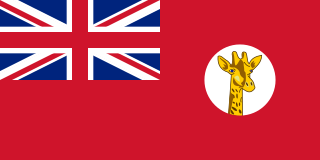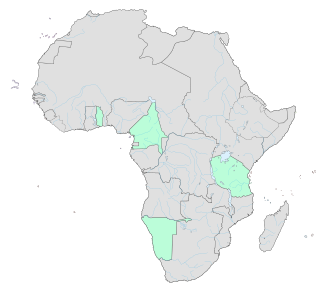John Iliffe | |
|---|---|
| Born | 1 May 1939 |
| Nationality | British |
| Known for | Historian of Africa |
John Iliffe (born 1 May 1939) is a British historian, specialising in the history of Africa and especially Tanzania. He was Professor of African History at the University of Cambridge and fellow of St John's College, Cambridge. He was awarded the 1988 Herskovits Prize for The African Poor: A History.
Iliffe was a fellow of the British Academy from 1989 to 2006.

Ulick Peter Burke is a British historian and professor. He was born to a Roman Catholic father and Jewish mother.

Eamon Duffy is an Irish historian. He is the Emeritus Professor of the History of Christianity at the University of Cambridge, and a Fellow and former president of Magdalene College.
Terence "Terry" Osborn Ranger was a prominent British Africanist, best known as a historian of Zimbabwe. Part of the post-colonial generation of historians, his work spanned the pre- and post-Independence (1980) period in Zimbabwe, from the 1960s to the present. He published and edited dozens of books and wrote hundreds of articles and book chapters, including co-editing The Invention of Tradition (1983) with Eric Hobsbawm. He was the Rhodes Professor of Race Relations at the University of Oxford and the first Africanist fellow of the British Academy.
John Barton is a British Anglican priest and biblical scholar. From 1991 to 2014, he was the Oriel and Laing Professor of the Interpretation of Holy Scripture at the University of Oxford and a Fellow of Oriel College. In addition to his academic career, he has been an ordained and serving priest in the Church of England since 1973.
The Zaramo people, also referred to as Dzalamo or Saramo, are a Bantu ethnic group native to the central eastern coast of Tanzania, particularly Dar es Salaam Region and Pwani Region. They are the largest ethnic group in and around Dar es Salaam, the former capital of Tanzania and the 7th largest city in Africa. Estimated to be about 0.7 million people, over 98% of them are Muslims, more specifically the Shafi'i school of Sunni Islam. Zaramo people are considered influential in Tanzania popular culture with musical genres like Sengeli originating from their commonity in Kinondoni District. Their culture and history have been shaped by their dwelling in both urban and rural landscapes.
Ndabeni is an industrial suburb of Cape Town, South Africa, mainly occupied by light industries such as textiles and clothing. It is located about 6 km east of Cape Town city centre and is serviced by a railway station. Ndabeni is bordered to the south east by Pinelands and to the north by Maitland. Its postcode is 7405.
The Gogo also known as Gongwe(Wagogo, in Swahili) are a Bantu ethnic and linguistic group based in the Dodoma Region of central Tanzania. In 1992 the Gogo population was estimated to number 1,300,000..
Henry Mathison Pelling was a British historian best known for his works on the history of the British Labour Party.
Zachary Nugent Brooke was a British medieval historian.
The Zigua or in some sources Zigula are a Bantu ethnic and linguistic people hailing from far northern Pwani Region and western southern Tanga Region. In Tanga Region they are the majority in Handeni District, northern Kilindi District and also a historically significant population in south of the Pangani River in Pangani District. They speak the Zigula language. In 1993, the Zigua population was estimated to number 355,000 people, today they number 631,000 people.

The Shambaa people, also called the Sambaa, Shambala, Sambala or Sambara, are a Bantu ethnic group. Their ancestral home is on the Usambara Mountains of Lushoto District, Korogwe District and Bumbuli District. They are native to the valleys and eastern Usambara Mountains of Korogwe District, Korogwe Urban District and western Muheza District of northern Tanga Region of Tanzania. The word Shamba means "farm", and these people live in one of the most fertile Tanzanian region. Shambaai in Kisambaa means "where the banana's thrive". In 2001, the Shambaa population was estimated to number 664,000.
The Bondei People are a Bantu ethnic group based in Muheza District and Pangani District of eastern Tanga Region in Tanzania. The Bondei speak Kibondei, Bantu language and are culturally related to the Shambaa ethnic group.
Judah Benzion "Ben" Segal, FBA was Professor of Semitic Languages at the School of Oriental and African Studies.

Tanganyika was a colonial territory in East Africa which was administered by the United Kingdom in various guises from 1916 until 1961. It was initially administered under a military occupation regime. From 20 July 1922, it was formalised into a League of Nations mandate under British rule. From 1946, it was administered by the UK as a United Nations trust territory.

Germany colonized Africa during two distinct periods. In the 1680s, the Margraviate of Brandenburg, then leading the broader realm of Brandenburg-Prussia, pursued limited imperial efforts in West Africa. The Brandenburg African Company was chartered in 1682 and established two small settlements on the Gold Coast of what is today Ghana. Five years later, a treaty with the king of Arguin in Mauritania established a protectorate over that island, and Brandenburg occupied an abandoned fort originally constructed there by Portugal. Brandenburg — after 1701, the Kingdom of Prussia — pursued these colonial efforts until 1721, when Arguin was captured by the French and the Gold Coast settlements were sold to the Dutch Republic.
Ernest Alfred Benians was a British academic and historian.
John Stokes was Archdeacon of York and President of Queens' College, Cambridge.
Karagwe Kingdom was a historical Bantu state in present-day Karagwe District of Kagera Region in northwestern Tanzania, between Rwanda and Lake Victoria. East Africa's influential Karagwe Kingdom was ruled by a hereditary monarchs whom were reputed to be Bachwezi descendants. By the end of the 20th century, it had thriving trade with traders from all parts of East Africa, especially slave trading Arabs. Bweranyange served as the Karagwe kingdom's capital.
Edward Hubbard was an English priest and academic.
Vugha or Vuga is historic village located inside Bumbuli District of Tanga Region in Tanzania. The settlement was established as the capital of the Kilindi dynasty.